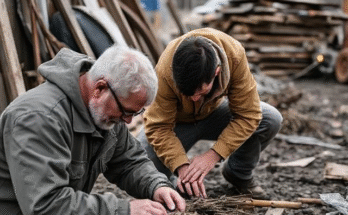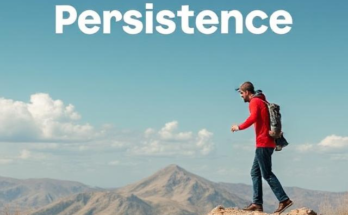Introduction
Imagine a universe in which there will never be a new thing the same way of doing things, with zero innovation. A lull for some, but given history, rigidity is deadly most of the time.
But in the face of rapidly changing social norms, technology, or ecology? Surviving is not enough—it is in learning to pivot where we flourish.
In this article, we shall explore why the paramount virtue is adaptability. Adaptability is the need of the hour to tackle what life throws at you.
Why Adaptability Matters
Today, agility in any shape or form, has a much bigger role to play than we realize in the scheme of things. Adaptability is no longer a “nice-to-have,” but a necessity. Whether you’re acclimating to a shifting job market, new social structures, or shifts in the global environment, the ability to pivot and accept change is key.
In both personal and professional realms, adaptability is a competitive advantage. There are no set rules that can guarantee success for every organization and individual, but history has taught us that groups that cultivate a flexible and innovative culture prosper in uncertain times, and that people who learn and adapt succeed in the long run.

The Dynamic Nature of Change
The rate at which technology is progressing makes it imperative that knowledge once deemed necessary can fade faster than a person can blink.
Changes in the economy, at a local or global level, can dramatically remake the landscape of jobs — they may require new skills and new ways of thinking.
We must learn how to deal with society and culture as they evolve around us.
For instance, think about how common the travel agent role used to be. Many in this profession have been forced to transition to a DIY-travel app-driven online world. Those who pivoted to travel consultancy or to so-called niche markets thrived; those who didn’t were left by the wayside.
Strategies to Enhance Adaptability
So, building adaptability is not just survival; it is succeeding through change. This helps them transform obstacles into opportunities for growth, enabling them to take on challenges with confidence. Below are some highly effective strategies that have been developed to help build adaptability and develop sustainable resilience over time.
For some of us, when there is change, we get on the wagon and ride it down the road of progress. Embracing new ideas, being open to learning, and being open to new ways of thinking can help you weather through uncertainty with more ease. Adaptability is not merely a skill, but a mindset, one that arms you to view change as a route to success
Embrace Continuous Learning
- Stay Up To Date: Make sure to follow the latest trends and news in your industry. Follow industry newsletters, participate in webinars and join online forums.
- Seek new skills: What needs to be developed in you professionally and personally. Online courses include Coursera, LinkedIn Learning and many others with topics and skills across a wide spectrum.
- Reflect and Iterate: This is time for self-assessment Acknowledge what you learnt through your past struggles and where you have room to improve in the future.
Cultivate a Growth Mindset
In contrast, a growth mindset popularized by the psychologist Carol Dweck sees potential rather than limitation.
Example: A conviction or disposition that the mind can be developed and expanded through effort, learning, struggle and persistence.
Challenges Challenge your perception of challenges. Think of them as opportunities instead of challenges Every problem is an opportunity to become a better human being and more efficient problem solver.
Embrace the Critique : Constructive critiquing is an opportunity for growth. Make sure you don’t think about feedback as something personal that you need to work on, think about it as a point of improvement and a guide to get you on the right track.
Forgive Yourself: Consider mistakes as learning opportunities, not as failures. Adversity is the foundation of success, and every challenge overcome breeds character, adaptability, and determination.
Embrace a growth mindset: A growth-mindset champions curiosity and a passion for learning. One should develop a thirst to learn, learn new skill sets, learn new things and should always remember that your learner ship is not a week process, it is lifelong journey, not an end.
“The measure of intelligence is the ability to change.” — Albert Einstein
Foster Strong Relationships
Developing a strong network can increase adaptability through a support system that may offer diverse perspectives on challenges and new opportunities for growth.
A network protects you in hard times and pushes you toward growth, giving you access to new ideas and different perspectives.
Network With Other Ideas: You may step outside of your story by discussing it with others. Having multiple viewpoints also breeds creativity, allowing you to tackle problems with a wider lens.
Collaborate Well: Working in teams can often expose alternative perspectives to a problem and promote creative solutions. It also enhances communication and adaptability while working with others which helps in problem-solving.
Network: 🔗 Keep in touch with your current connections, and make new ones along the way. Their experiences can guide you when facing challenges and fast-track your growth, both personally and professionally.
Develop Relationships with Purpose: Networking is not about just connecting , it’s about nurturing those connections. Authentic connections, underpinned by faith and an ethos of shared lend-a-hand, pay great dividends down the line; we never know what great things grow out of solid professional and personal relationships.
The Future of Adaptability
AI says: With technology advancing and the future becoming more uncertain, adaptability becomes essential. Potentially new fields, think artificial intelligence, renewable energy — are already paving the way for new industries and skill sets. If you shift your attention to the shift, it keeps you relevant to everything that matters to you, both personally and in business.
Keep in mind that being relevant in the time of technological evolution with a breakneck pace is not about keeping the pace, it is about making change a bike to growth!
By remaining open and willing to learn, you were better positioned to tackle these new trends head on, observing new opportunities and enacting meaningful action as we progress.
Conclusion
And because change is ever-evolving and often accelerating, adaptability is not only a trait that helps you have the best chance of survival; it’s also a vital key to thriving.
By adopting a posture of perpetual learning and growth, and investing in our relationships, we open up infinite possibilities. So the next time you notice change, just remember — you can sink and you can swim. Which will it be?
In our ever-evolving world, what’s one thing you are prepared to do differently? Tell us your thoughts in the comments!
Remember: “Adaptability is not imitation. It means power of resistance and assimilation.” — Mahatma Gandhi



